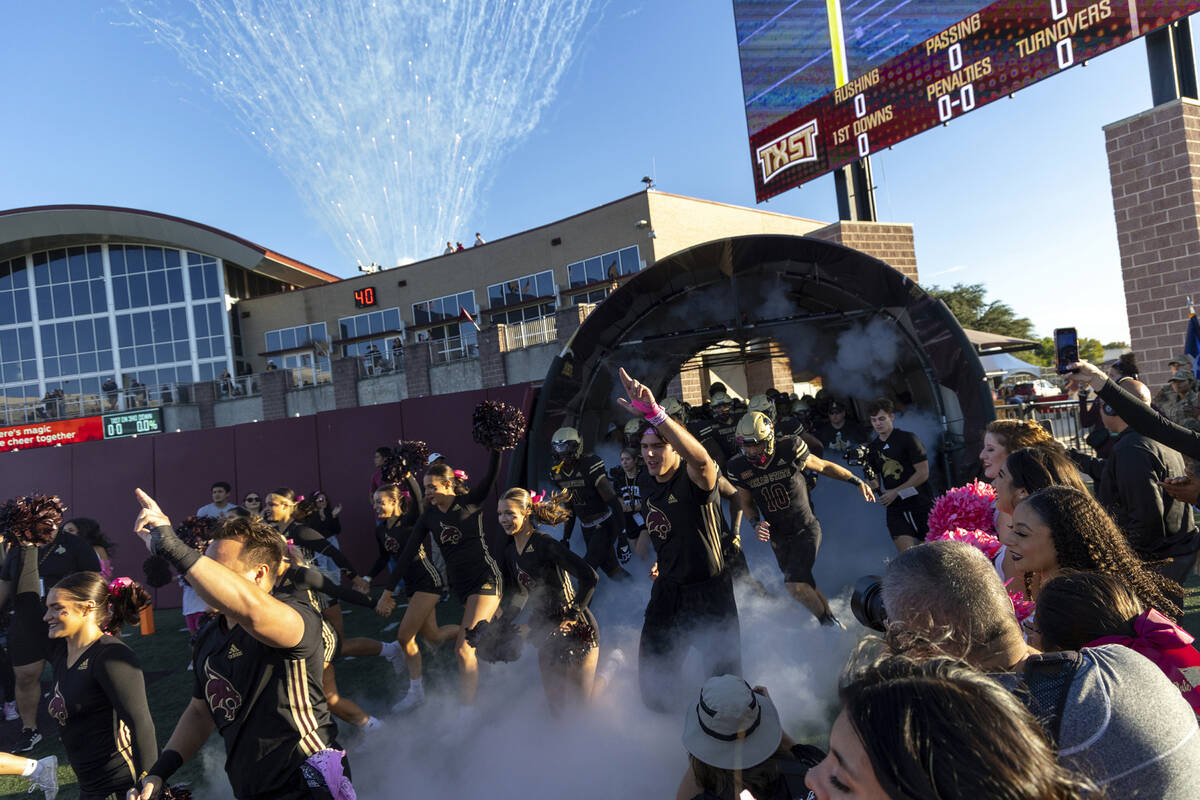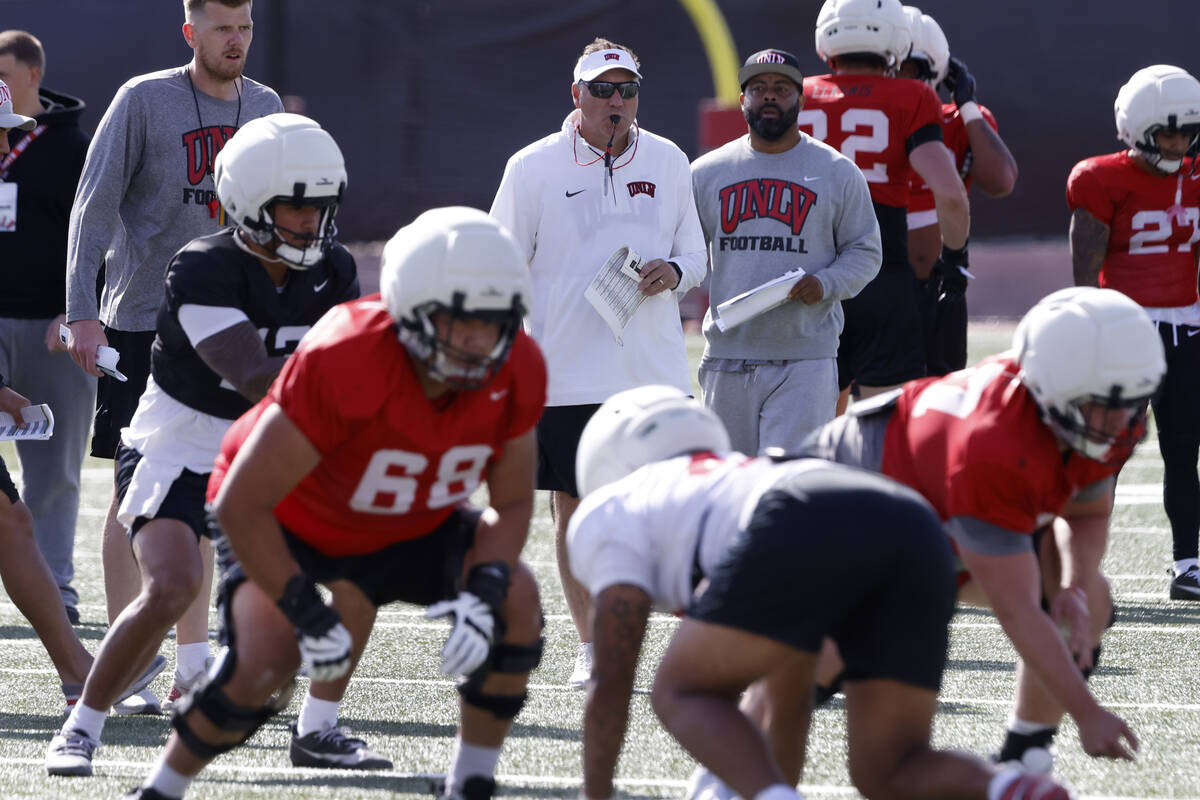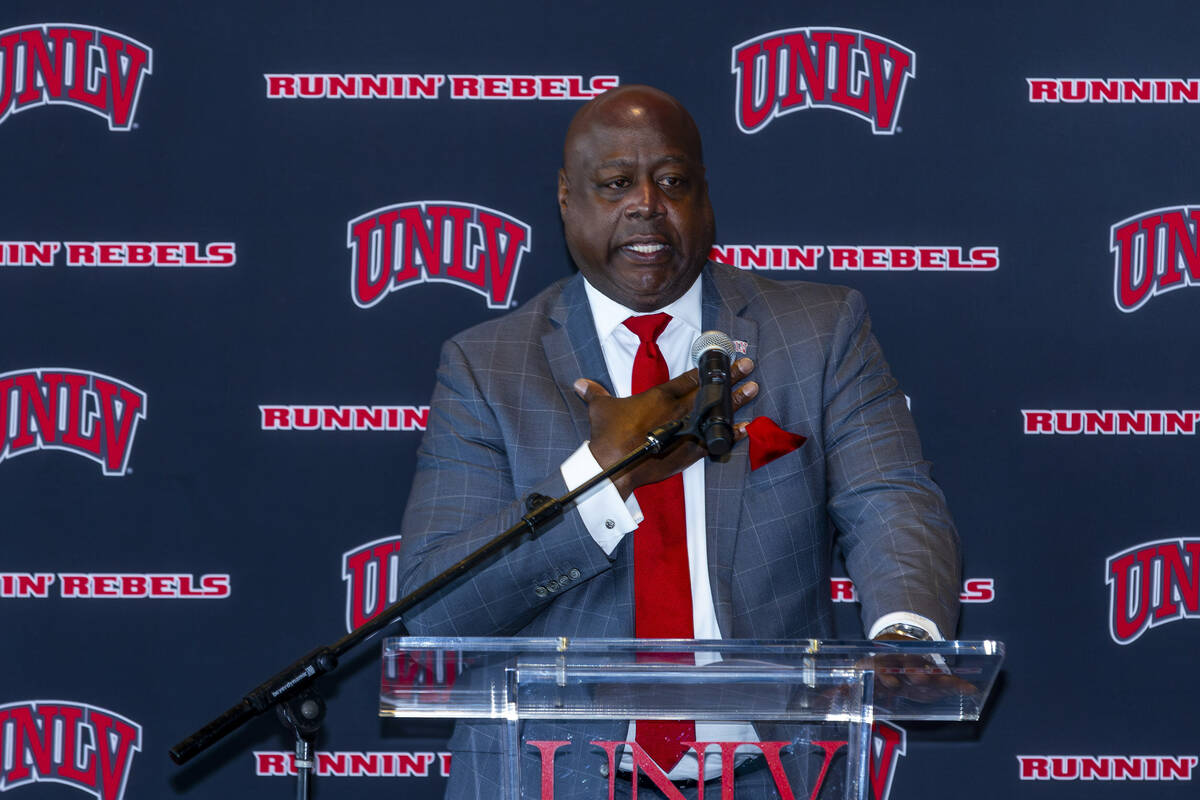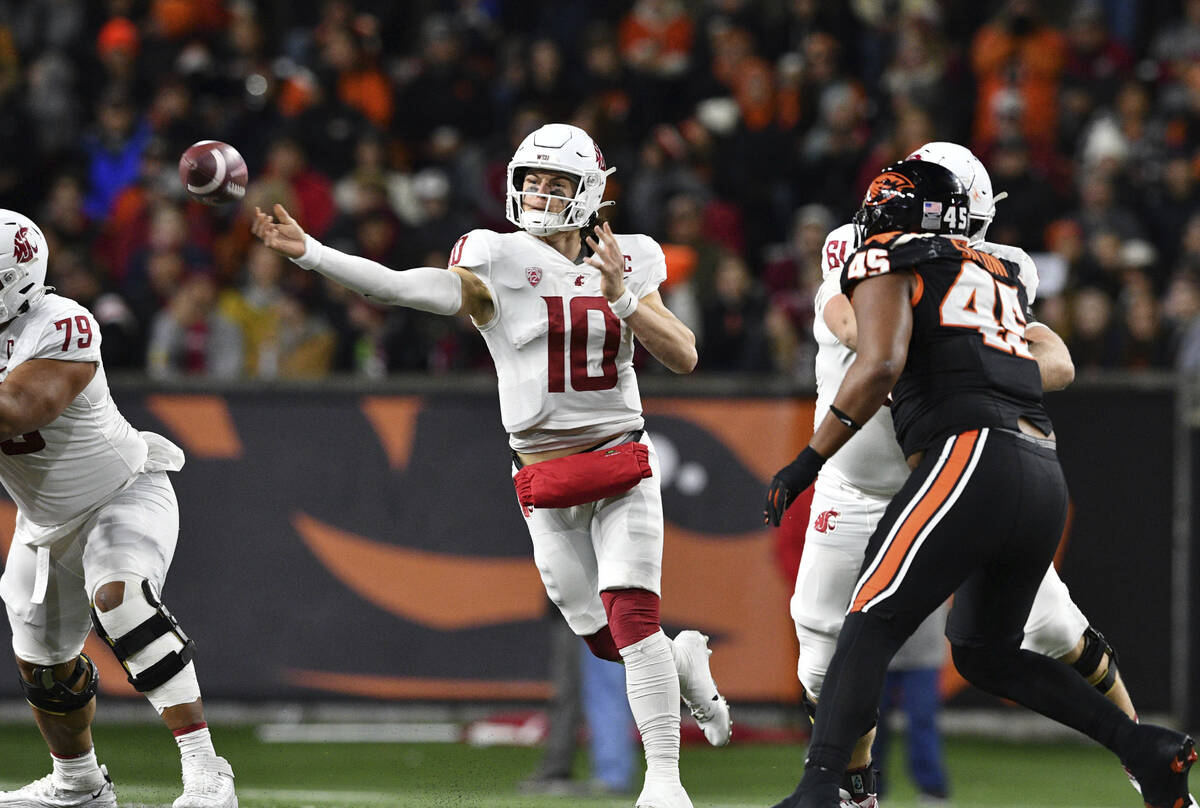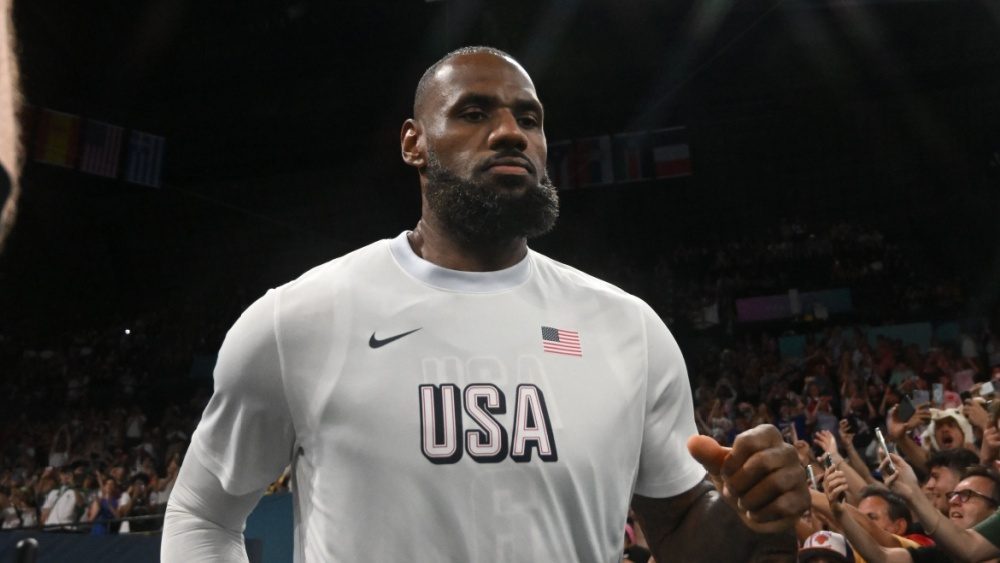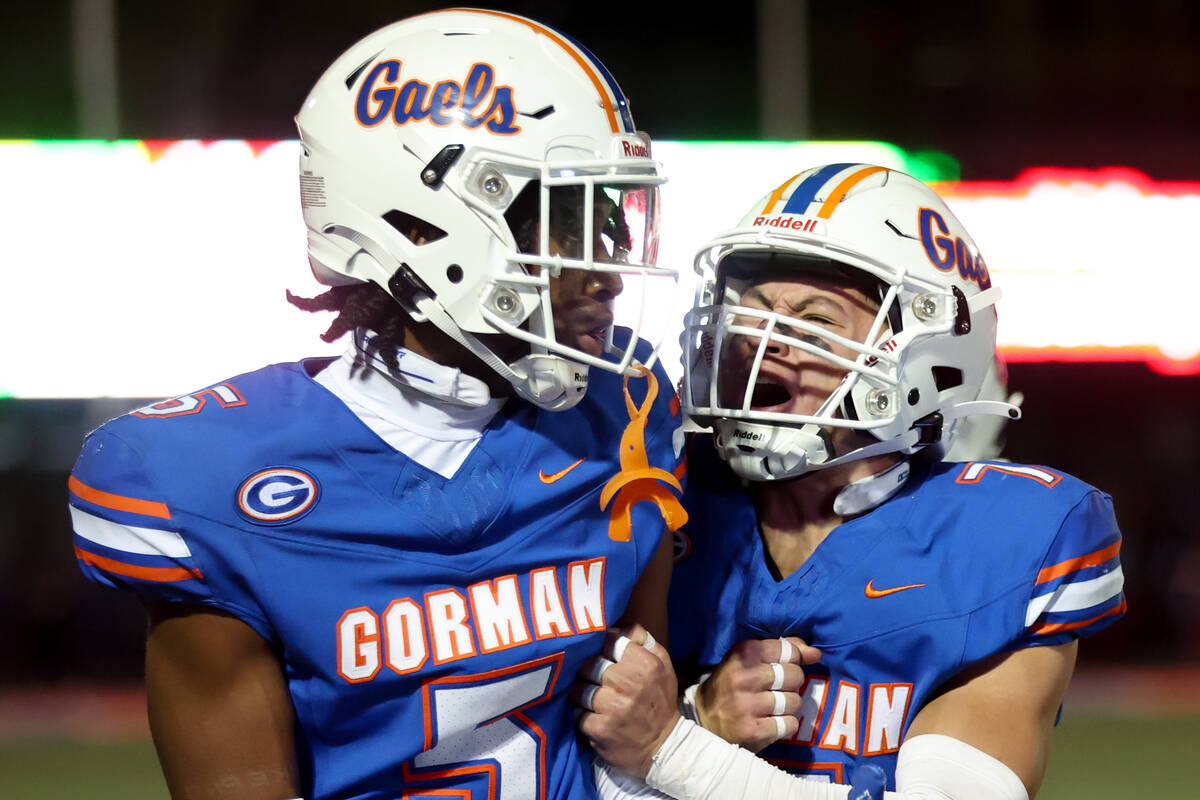It’s pretty clear now that UNLV won’t be joining the Pac-12.
The league finally has an eighth full-time member, and it’s not the Rebels.
But, yes, it’s a real conference now.
Texas State is leaving the Sun Belt after accepting an invitation to join the Pac-12 on Monday.
It’s the eighth school that offers football in the league, which was required to retain its status as a Football Bowl Subdivision conference.
Texas State joins eight other schools — including Mountain West defectors Boise State, Colorado State, Fresno State, San Diego State and Utah State — in the new-look Pac-12 that will officially open for business July 1, 2026.
Oregon State and Washington State are holdovers from the previous Pac-12, and Gonzaga will be a nonfootball playing member.
Ending speculation
“We are extremely excited to welcome Texas State as a foundational member of the new Pac-12,” commissioner Teresa Gould said in a statement. “It is a new day in college sports and the most opportune time to launch a new league that is positioned to succeed in today’s landscape with student-athletes in mind.”
The addition of Texas State all but puts an end to speculation that UNLV would ultimately decide to bolt the Mountain West for the Pac-12.
Texas State wasn’t the first choice of the Pac-12 as an eighth member.
The conference unsuccessfully made runs at UNLV and Air Force, who both decided to stay in the Mountain West after receiving major financial incentives from the conference, and Memphis and Tulane from the American Athletic Conference.
UNLV’s immediate goal is to land in a Power Four conference such as the Big 12, though it signed a grant of rights agreement that locks the school into Mountain West membership through 2032.
But there is a clause in the deal that allows conference schools such as UNLV to join a power league without paying an exit fee.
Among other incentives to remain in the Mountain West, UNLV was promised millions of dollars in payouts over six years and that the league would keep its men’s and women’s basketball tournaments at the Thomas & Mack Center.
At the time of reaffirming its loyalty to the Mountain West, UNLV officials cited being a charter member of the conference and that it was an established product.
The increased revenue was a major part in the decision to stay and gave UNLV the “needed flexibility as we pursue our future goal of joining a (Power Four) conference.”
Texas State will pay a $5 million buyout to depart the Sun Belt, of which it has been a member since 2013. Its football program has shown some life lately with two consecutive bowl wins.
The school also has poured money into upgrading its athletic facilities, with $149 million invested since 2022.
That includes a $37 million football performance center. Another $50 million in planned enhancements will support athlete revenue sharing and performance centers across multiple sports.
The Bobcats also signed a $23 million stadium naming rights deal, the largest in Group of Five history.
Texas State sits in San Marcos — between San Antonio and Austin — and has an enrollment of 40,000.
Here to win
“We are not joining the Pac-12 to simply participate,” Texas State president Kelly Damphousse said in a statement. “We are joining to compete, contribute and win championships.”
The Pac-12 announced a new media rights deal with CBS last week but didn’t say how much each member school would receive. It’s also unknown if Texas State will be afforded a full share of that revenue to start.
Texas State makes $2 million annually in total conference distributions from the Sun Belt, so you figure life in the Pac-12 will mean more of a payday.
Mountain West commissioner Gloria Nevarez told the Review-Journal last week that her conference should have a new media rights deal in the coming weeks.
UNLV receives $3.5 million annually under the Mountain West deal set to expire.
Contact Ed Graney at egraney@reviewjournal.com. Follow @edgraney on X.

